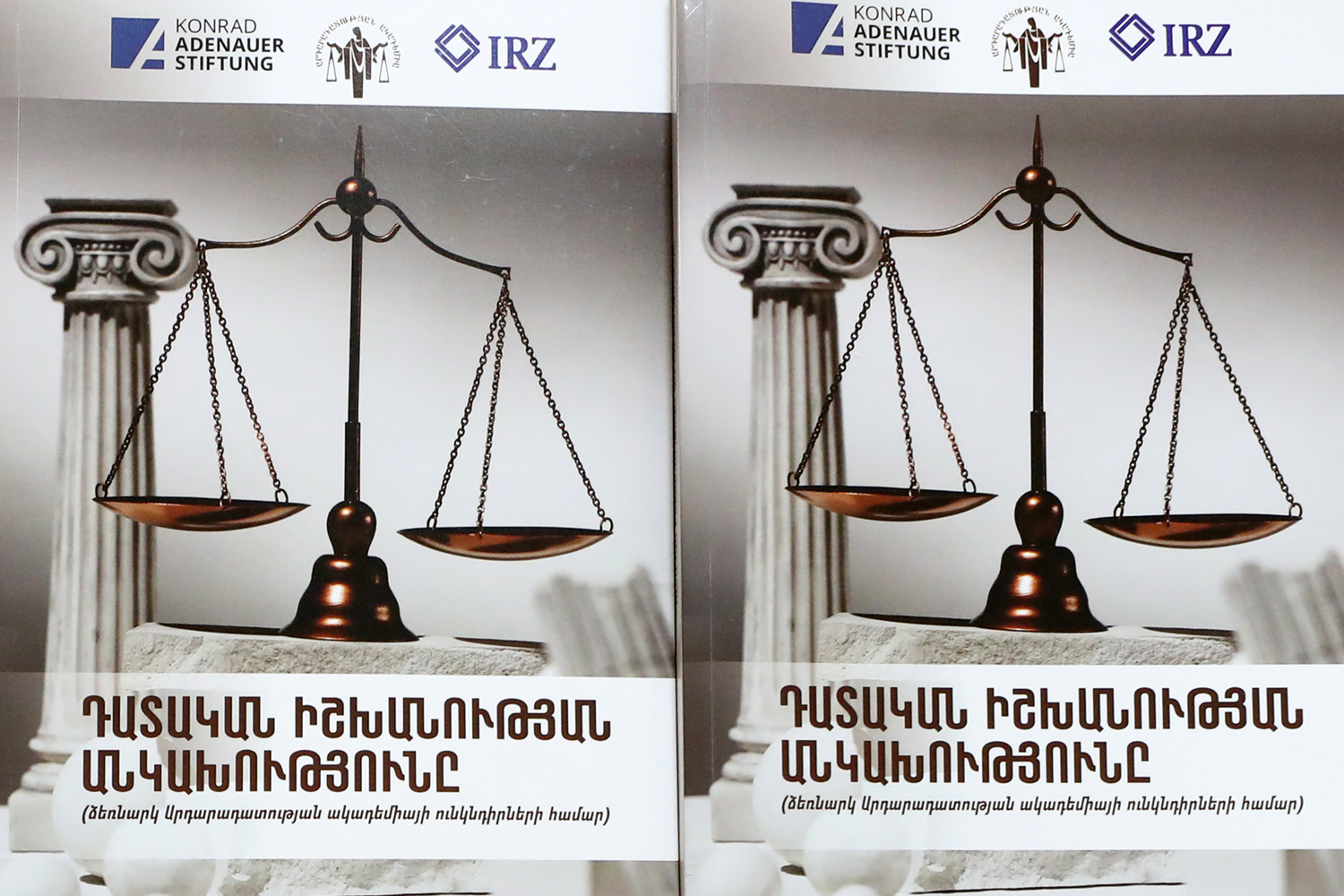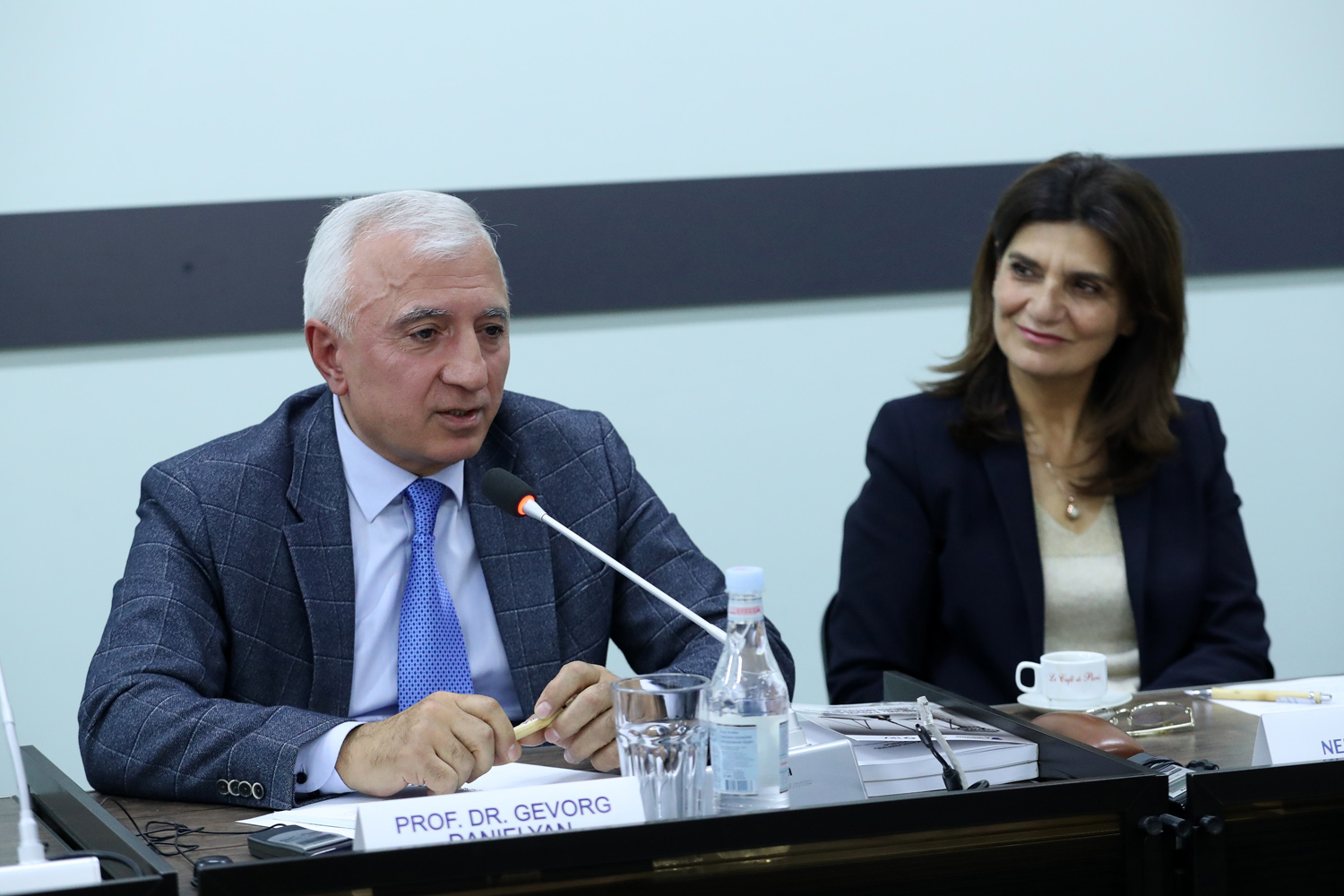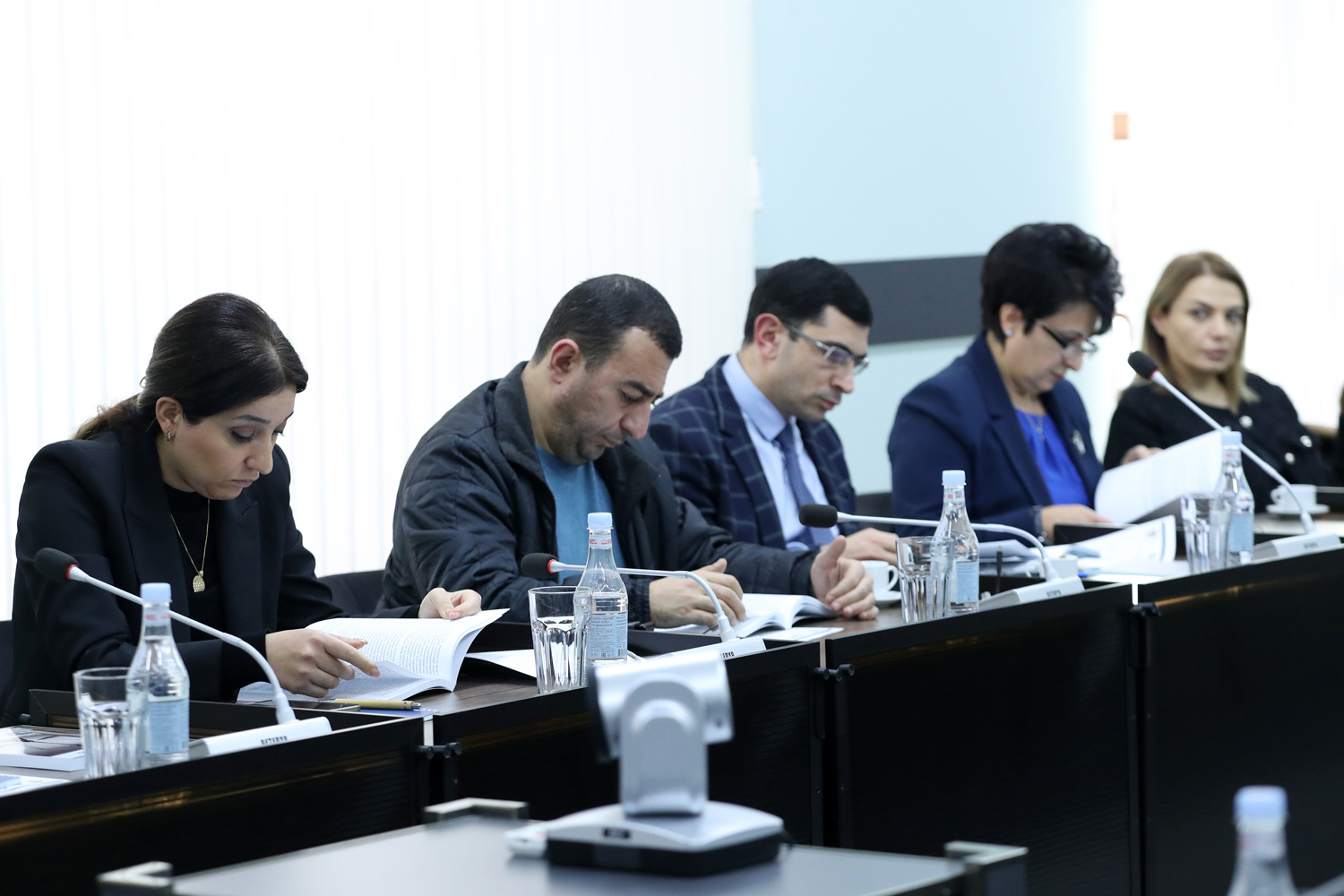
THE HANDBOOK “INDEPENDENCE OF THE JUDICIARY” WAS PUBLISHED
On November 19, 2024, the presentation of the handbook “Independence of the Judiciary”, co-authored by Justices of the Constitutional Court of the Republic of Armenia Yervand Khundkaryan, Arthur Vagharshyan, and Doctor of Law, Professor Gevorg Danielyan, was held.
The handbook is intended for judges and candidates for judges, and the eponymous course is already included in the 2025 curriculum for training judges and candidates for judges.
According to the co-author of the handbook, Justice of the Constitutional Court Yervand Khundkaryan, the handbook “Independence of the Judiciary” became a reality as a result of difficult and extensive discussions. This study was created to greatly assist judges create the image of an independent judge. The handbook is also interesting from the point of view that two perspectives on the independence of a judge have come together, namely, the internal perspective and the external perspective. This research was created by people with extensive experience in scientific and educational activity and long-term experience in the judiciary.
The handbook addresses the internal independence of judges as an important component of judicial independence, as well as the binding nature of the decisions of the Cassation Court, and the Constitutional Court, and of the decisions of the Supreme Judicial Council on subjecting judges to disciplinary liability, and the impact of the above decisions on the internal convictions and formation of legal positions of judges of first instance and appellate courts. Reference is also made to the legislation on the issues of ensuring the material and social independence of judges, with the most adequate interpretations possible. Moreover, the problems and gaps in the legislative regulations on the above issues are also touched upon, as well as the vision of legislative reforms is put forward by the authors.
Constitutional Court's Justice Arthur Vagharshyan noted that the issues of independence of the judiciary were emphasized due to the effectiveness of several components forming a metasystem and subsystem for the judiciary. This approach has made it possible to put forward several aspects of the concept of independence in the system of the judiciary, namely, independence in relations with equal subsystems of the state structure system, horizontal and vertical independence of courts and judicial instances from each other in the system of the judiciary due to their jurisdictions, independence of domestic courts and judges from unlawful interference by the authorities operating based on international treaties ratified by the Republic of Armenia, including courts, as well as their independence within the structural units of the court as a state authority, which is manifested in the external and internal relations of the panels of judges, the relations between the court president and judges, between the support units of courts and judges, as well as the extra-systemic independence of a judge as an official, and the independence of the court from unconstitutional laws. In addition to non-exhaustive manifestations of independence, the proper professional characteristics and professionalism of judges, their natural and acquired psychological qualities as individuals, as well as the well-established civil society and its subsystems are perceived as unique guarantees for the independence of judges.
The presentation held at the Academy of Justice was followed by a professional discussion and question-and-answer session between the authors and participants.
Notice: The handbook was developed and published in cooperation with the Academy of Justice, the Konrad Adenauer Foundation, and the German Foundation for International Legal Cooperation (IRZ).
The electronic version of the handbook is available at the following link: https://www.kas.de/documents/269781/269830/Unabh%C3%A4ngigkeit+der+Richterlichen+Gewalt.pdf/30081a29-e567-c6f2-41b4-955bc6d786e9?version=1.0&t=1732610266411
News

3 February 2026
THE PRESIDENT OF THE CONSTITUTIONAL COURT OF THE REPUBLIC OF ARMENIA MET WITH THE DIRECTOR OF HUMAN RIGHTS OF THE COUNCIL OF EUROPE

3 February 2026
THE PRESIDENT OF THE CONSTITUTIONAL COURT OF THE REPUBLIC OF ARMENIA MET WITH THE PRESIDENT OF THE VENICE COMMISSION

2 February 2026
THE PRESIDENT OF THE CONSTITUTIONAL COURT PARTICIPATED IN THE OPENING OF THE JUDICIAL YEAR OF THE EUROPEAN COURT OF HUMAN RIGHTS IN STRASBOURG

2 February 2026
MEETING OF THE PRESIDENT OF THE CONSTITUTIONAL COURT OF THE REPUBLIC OF ARMENIA AND THE PRESIDENT OF THE EUROPEAN COURT OF HUMAN RIGHTS IN STRASBOURG

20 January 2026
THE ROLE OF STATE AUTHORITIES AND CIVIL SOCIETY IN THE IMPLEMENTATION OF THE DECISIONS OF THE CONSTITUTIONAL COURT

The website of the Constitutional Court of the Republic of Armenia has been created as part of the Partnership for Good Governance (PGG II) Project ''Support to the judicial reform – enhancing the independence and professionalism of the judiciary in Armenia'' co-funded by the European Union and the Council of Europe. The views expressed herein can in no way be taken to reflect the official opinion of either party.

The upgrade of the official website of the Constitutional Court of the Republic of Armenia is made possible by the support of the American People through the United States Agency for International Development (USAID) as a part of the USAID/Armenia Justice Sector Support Project. The content of this website is the sole responsibility of the Constitutional Court and does not necessarily reflect the views of USAID or the United States Government.
















